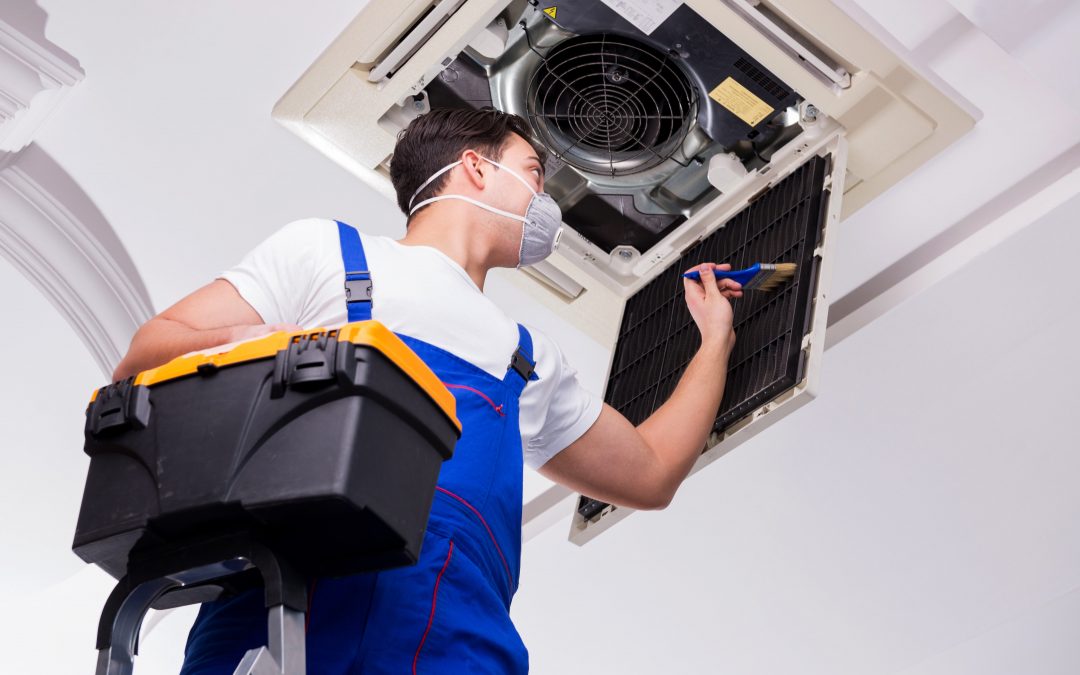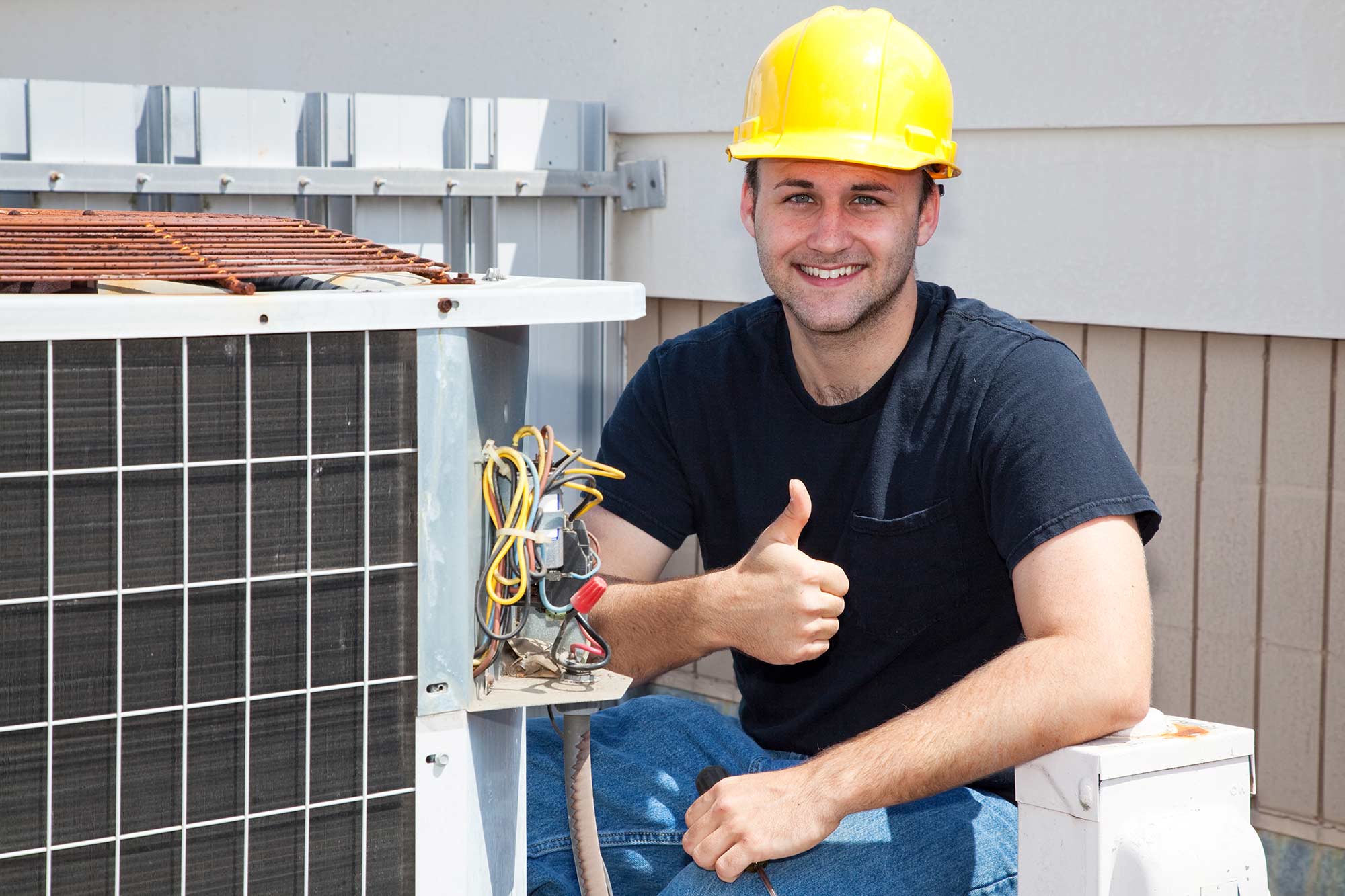How to perform a effective ac fix until the technician arrives
Wiki Article
Everything about Cooling And Heating: Identifying Common Issues and Effective A/c Repair Service Methods
Heating and cooling systems are vital for maintaining indoor comfort. Understanding their elements and functionality is necessary for identifying typical issues. Home owners often encounter issues such as inadequate cooling, unusual smells, or climbing power costs. These indicators can suggest underlying problems that might call for focus. Checking out do it yourself troubleshooting methods can be beneficial, however knowing when to look for specialist help is equally vital. What steps can be required to assure long-lasting efficiency?Recognizing Your Heating And Cooling System: Elements and Performance
A cooling and heating system, typically thought about the backbone of indoor climate control, includes several key parts that function with each other to control temperature and air high quality. The primary components consist of the home heating unit, air flow system, and cooling device. The home heating unit, generally a furnace or central heating boiler, produces warmth throughout chillier months, while the cooling device cools down interior rooms during the summer.
Common Cooling And Heating Troubles Home Owners Encounter
House owners frequently encounter numerous usual a/c troubles, including irregular temperature circulation throughout their space. In addition, uncommon sounds throughout procedure can indicate underlying problems that require interest. Resolving these concerns quickly is vital for maintaining perfect system performance.Irregular Temperature Level Distribution
Numerous houses experience the aggravating issue of irregular temperature level circulation, where particular rooms feel uncomfortably warm while others continue to be as well cold. This trouble frequently occurs from a variety of variables, including inadequate insulation, obstructed vents, or an improperly sized heating and cooling system. When ducts are not properly secured or when furniture blocks airflow, some rooms may obtain insufficient cooling. Additionally, thermostat positioning can substantially influence temperature guideline; a thermostat located in a sunlit area may misrepresent the overall temperature level of the house. Routine maintenance, consisting of cleansing filters and making certain ductwork is clear, can help reduce these discrepancies. Homeowners might additionally consider zoning systems to far better control temperature levels throughout various locations of the home, promoting a more comfy living setting.Unusual Noises During Operation
When a cooling and heating system runs, unusual sounds can indicate underlying concerns that need attention. Home owners may come across a variety of sounds, such as grinding, squealing, or hissing. Grinding noises often signify worn-out bearings or components, while squeaking can suggest loosened belts or parts needing lubrication. Hissing might show a cooling agent leak, which can endanger the system's efficiency. Furthermore, banging audios may direct to loosened ductwork or a concern with the blower fan. Each of these sounds functions as a caution, prompting home owners to investigate better. Ignoring these indications can result in even more substantial issues and expensive repair work. Normal maintenance and punctual focus to uncommon sounds can improve system durability and efficiency, making sure a comfortable living setting.Signs That Indicate Your Air Conditioning Demands Repair Service
Just how can one inform if their cooling system is in need of repair? Numerous indications might suggest underlying problems requiring professional focus. Initially, if the air conditioner fails to cool down the space successfully, it may recommend a refrigerant leak or compressor malfunction. Additionally, an increase in energy costs without corresponding use changes could indicate inadequacy in the system. Property owners should additionally be alert to unusual scents rising from the system, which might suggest mold and mildew growth or electric problems. If the A/c regularly cycles on and off, it might be an indication of a damaged thermostat or various other mechanical problems. Lastly, the visibility of water pooling around the unit can indicate a blocked drainpipe line. Identifying these indications early can conserve money and time, guaranteeing that the cooling system runs efficiently and properly.DIY Troubleshooting Techniques for A/c Issues
When encountering cooling and heating issues, house owners can utilize several DIY repairing strategies to identify the trouble. Trick methods consist of checking thermostat setups, evaluating air filters, and examining drain issues. These actions can help pinpoint usual breakdowns before seeking specialist help.Inspecting Thermostat Settings
What steps should homeowners take to ensure their thermostat setups are appropriate? First, they must verify the thermostat is set to the preferred temperature level and mode, whether heating or cooling. Looking for a clear display screen and validating the thermostat is not set to "hold" or "vacation" setting is important. Homeowners should likewise validate that the thermostat is level and installed in a location complimentary from drafts, direct sunlight, or various other temperature level affects. Additionally, altering the thermostat can assist offer precise analyses. If the thermostat operates batteries, replacing them might resolve any type of concerns. By systematically assessing these variables, home owners can commonly determine and remedy thermostat-related problems, promoting optimal heating and cooling system performance.Inspecting Air Filters
Air filters play a necessary function in preserving optimal cooling and heating efficiency. They trap dirt, irritants, and other fragments, guaranteeing tidy air flow. Over time, filters can end up being stopped up, decreasing airflow and performance. To evaluate air filters, people must initially find the filter, often found in the return air duct or near the heating system. As soon as located, they should review the filter's problem-- if it appears dirty or tarnished, it most likely needs substitute. Most filters require altering every 1-3 months, depending upon use and environmental elements. Routine examination and timely replacement of air filters not only boost air top quality however additionally extend the lifespan of cooling and heating systems, stopping prospective malfunctions and pricey fixings.
Assessing Drain Issues
Exactly how can home owners efficiently recognize and deal with water drainage issues within their a/c systems? Initially, they need to evaluate the condensate drain line for clogs or clogs, which can cause water accumulation. House owners may make use of a wet/dry vacuum cleaner to clear any type of particles obstructing the line. Next off, inspecting the drain frying pan for air conditioner prices corrosion or leakages is necessary, as a harmed frying pan can create water to overflow. Routine cleansing of the drain line with a combination of vinegar and water helps prevent future obstructions. Additionally, making sure proper slope of the drain line advertises effective water circulation. If these DIY strategies do not resolve the issue, seeking advice from a professional HVAC technician may be required to avoid possible water damage and system failure.When to Call a Professional for Air Conditioner Repairs

While some a/c issues can be managed through DIY methods, there are circumstances where calling an expert becomes essential. Property owners need to seek skilled aid when they come across consistent problems, such as insufficient air conditioning, weird sounds, or unusual odors rising from the device. These signs and symptoms might show much deeper issues that require specialized expertise and tools to identify and repair correctly.

Preventative Upkeep Tips for A/c Durability
Normal preventative upkeep can greatly improve the long life of a/c systems. House owners must arrange yearly inspections by qualified service technicians to examine system effectiveness and determine prospective issues. Consistently altering or cleaning up air filters is vital, as this assurances correct air movement and minimizes pressure on the system. On top of that, examining and sealing ductwork protects against power loss and boosts total performance.
It is likewise advisable to maintain the outdoor unit free from particles and plant life, permitting for peak air flow and warmth exchange. Homeowners must evaluate the condensate drainpipe for clogs to avoid water damages and mold and mildew growth. Moreover, preserving suitable thermostat settings and utilizing programmable alternatives can enhance energy effectiveness. Recording upkeep activities assists track service background and can help in recognizing repeating concerns. By following these preventative measures, individuals can optimize the effectiveness and life-span of their a/c systems
Often Asked Questions
How Commonly Should I Change My HVAC System Filters?
HVAC system filters must commonly be replaced each to 3 months, depending upon usage, filter kind, and environmental elements. Regular replacement helps maintain performance and air quality, making certain peak system efficiency throughout the year.What Size Cooling And Heating System Do I Required for My Home?
To establish the proper heating and cooling system size for a home, one need to consider square video footage, insulation top quality, and local environment. Consulting a specialist can assist assure maximum performance and comfort for the specific living room.Exist Eco-Friendly HVAC Options Available?
Yes, eco-friendly a/c options are offered, including energy-efficient discover this info here heat pumps, solar-powered systems, and geothermal heating. These options lower power consumption and ecological effect, promoting sustainability while maintaining efficient climate control for residential and industrial spaces.Exactly How Can I Enhance My HVAC System's Energy Efficiency?
To boost a/c power efficiency, one can frequently preserve the system, seal air leaks, mount programmable thermostats, use energy-efficient filters, and assurance sufficient insulation throughout the home to decrease power usage and improve efficiency.
What Is the Ordinary Life Expectancy of a HVAC System?
The average life-span of a heating and cooling system commonly varies from 15 to 25 years, depending upon aspects such as maintenance, usage, and the high quality of setup. Routine maintenance can significantly prolong its operational long life.Verdict
In recap, a comprehensive understanding of heating and cooling systems empowers property owners to determine common problems and address minor problems effectively. Acknowledging indicators of malfunction, utilizing DIY fixing techniques, and focusing on normal upkeep can enhance system performance and effectiveness. When encountered with complex repair services, employing specialist assistance is important to guarantee safety and security and long life. blog By promoting understanding and proactive care, people can take pleasure in a comfy interior environment while decreasing unforeseen prices connected with cooling and heating failures.Report this wiki page